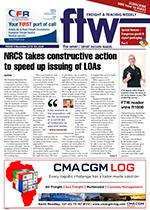Investment in technology may be costly – but companies that fail to do so will be moving backwards. That was the message from Dr Andrew Shaw, a partner at PricewaterhouseCoopers, who told delegates attending the monthly Transport Forum in Cape Town recently that while many of the technologies had already been developed and were being piloted, in many cases they were still at the very early stages of the adoption curve.
But, he said, now was not the time to adopt a wait-and-see approach as disintermediation by many small start-up companies had already started in freight logistics. Considering most of these start-ups had no freight or logistics backgrounds, this would only intensify as technology platforms became more robust and mainstream.
“We have entered a period of rapid digital transition,” said Shaw. “Companies have to invest in technology – and considering that a lot of what is on the table will not survive, it is a risky and often costly process. He said this would in all probability mean that many companies would find themselves investing in solutions that did not stand the test of time.
“The differentiating factor going forward will be in the ability to fail fast. In other words, if you have invested in technology but it is failing, those companies that have the ability to move away quickly and replace it with the right technology are the ones that will go forward.” According to Dave Ives, director of Digital Transformation at technology solutions company Karabina, which hosted the event, companies have a lot to process at present as it is not simply a matter of digitising one’s systems and processes.
“Every business is becoming a digital business in some shape or form. Companies need to be thinking about how processes are enabled through systems, the impact that it will have on the people in the business and cyber security,” he said. In addition, many companies going forward would have to rationalise to remain competitive, which meant the digital process was not necessarily an easy one, said Ives, but it was critical going forward.
Erick Bredenkamp, a director at Optsol, said the Fourth Industrial Revolution or Industry 4.0 was bringing change at a faster pace than had ever before been experienced and business would be under pressure to keep up.
“There is not an industry that will not be impacted by this revolution,” he said.
The differentiating factor going forward will be in the ability to fail fast. – Andrew Shaw

